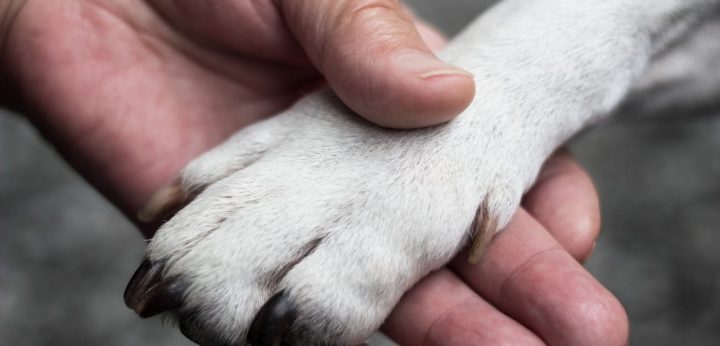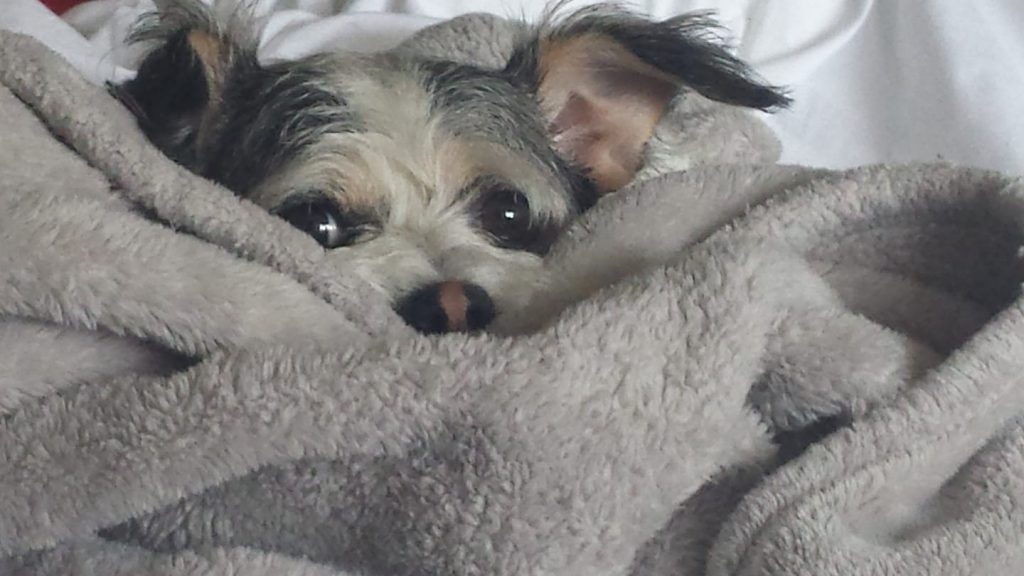The Therapeutic Benefits of Owning a Pet

My son was 8 years old when he was diagnosed with pulmonary hypertension (PH). Children are supposed to be nurtured, but the attention showered on a child living with a life-threatening disease can begin to feel smothering.
For the five years my son battled PH, I greeted him each morning by asking, “How are you feeling?” I repeated the question throughout the day. Because of his medical condition, I had an extensive treatment regimen that I had to enforce daily. I would nag him about brushing his teeth, doing his homework, going to bed at a decent hour, and other such ordinary concerns, too.
Bedtime routines are often a battle with children, but the one my son endured was far more complicated. One of his PH treatments was intravenous Flolan (epoprostenol GM). A CADD-Legacy pump administered the medication nonstop through a central line in my son’s chest. Before bed every night, he had to wait patiently as his dad or I changed his Flolan cartridge, and his central line dressing every other night.
The medication needed to stay cold, so we would ask multiple times a day whether he had changed the ice packs in his Flolan backpack. While other children were being told to tie their shoes to prevent tripping, my son was frequently reminded to tuck in his central line tubing so he wouldn’t risk pulling it from his chest.
Interested in PH research? Check out our forums and join the conversation!
He was also on a handful of other medications that meant stopping what he was doing to take them. Even less fun were the endless medical appointments and hospital stays, when he was asked endless questions and received extensive care.
Well-nurtured by doctors, family, and friends, my son maintained a good quality of life until he declined at age 13. On Aug. 30, 2013, he was officially listed for a heart and double-lung transplant.
As he tried to process this new reality, he thoughtfully turned to his father and me and asked, “Once I receive my transplant, can I get a dog?” We already had a dog, but he wanted to select a puppy of his own, name it, and take on most of the responsibility for its care. Sensing that he wasn’t taking advantage of an emotional situation but making a request of deeper meaning, we promised him a dog.
He received his transplant on Aug. 7, 2014. Six months later, with the most challenging days of recovery behind him, I decided it was time to keep that promise. My son wanted a rescue dog, so we headed to the Humane Society shelter.
It didn’t take long for a 6-month-old puppy with a pink-striped nose to get his attention. That evening, we adopted the little Jack Russell terrier, which my son later named Mellow. As we drove home with her, she sat on my son’s lap as if they were long-lost friends.
Mellow loves her family, but is most loyal to my son. She seems to know instinctively when he isn’t feeling well, and loyally remains by his side, providing quiet comfort. She is also very protective, and will relentlessly bark at anything or anyone she thinks is causing him stress or harm. If left to her own devices, I think she would bravely take on my son’s blood pressure machine and break it into pieces. This and her fun-loving, playful side have made her the perfect furry best friend for my son.
Other than the joy of companionship, I think the deeper reason my son wanted a dog was to have someone of his own to nurture. He pictured an opportunity to someday be the caregiver to a sweet little rescue dog, and when his dream came true, she did not disappoint. Being depended on has brought him as much joy as the companionship. It invites the question, “Who rescued whom?”
She is everything he wanted and needed in a dog. Perhaps divine intervention helped them find each other.
If you or a loved one have ever had the pleasure of being visited by a therapy dog while in the hospital, you have an idea of the emotional healing power the love of an animal can provide. Whether it be a dog, cat, or bird, consider adopting an animal. Just be sure to discuss it with your doctor first.
The French poet and novelist Anatole France once said in a speech, “Until one has loved an animal, a part of one’s soul remains unawakened.” My son would tell you that truer words have never been spoken.
***
Note: Pulmonary Hypertension News is strictly a news and information website about the disease. It does not provide medical advice, diagnosis, or treatment. This content is not intended to be a substitute for professional medical advice, diagnosis, or treatment. Always seek the advice of your physician or other qualified health provider with any questions you may have regarding a medical condition. Never disregard professional medical advice or delay in seeking it because of something you have read on this website. The opinions expressed in this column are not those of Pulmonary Hypertension News or its parent company, Bionews Services, and are intended to spark discussion about issues pertaining to pulmonary hypertension.









Leave a comment
Fill in the required fields to post. Your email address will not be published.